
Can Ongoing EHR Support Be the Best Choice for EHR Optimization?
The implementation of an EHR is certainly a breakthrough for your health system; however, clinicians are still …
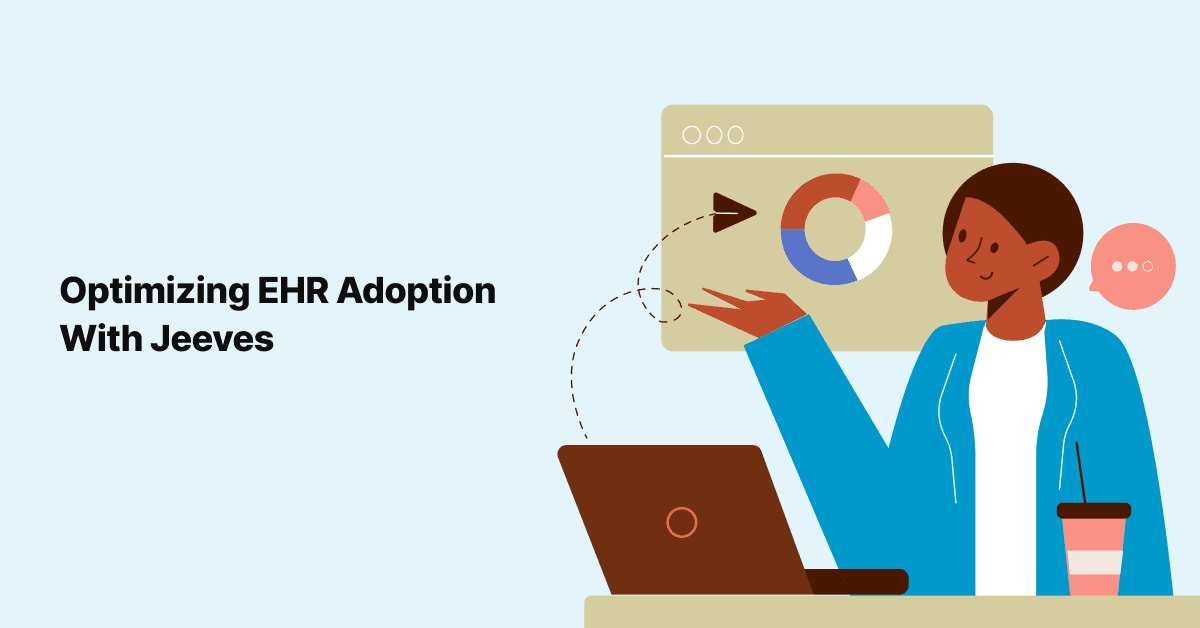
Every time there is a new EHR upgrade, the end-users have to be updated and trained on it. Research shows that 60% of healthcare workers are frustrated with EHR changes due to the difficulty of learning about the new software every time this happens.
EHR training can help in providing the necessary learnings when changes happen. However, retaining and documenting them accurately, in the long run, can be a challenge, especially when the software is prone to frequent changes. This forces the clinicians to spend extra time on the software apart from their duty hours to learn about them. This leads to overwork and physician burnout, which can directly affect the quality and level of patient care.
Providing physicians with information in the moment of need can help them in dealing with reality related to the continuous changes in EHRs. Jeeves is an instant support tool that is designed to provide just-in-time assistance within enterprise applications. It helps in keeping the users up-to-date with upgrades and in providing self-help resources. Jeeves provides information in a problem-specific or department-specific manner (as shown in the images below) that gives targeted answers to the user questions when they are stuck in workflows or are unable to recall particular information while working.
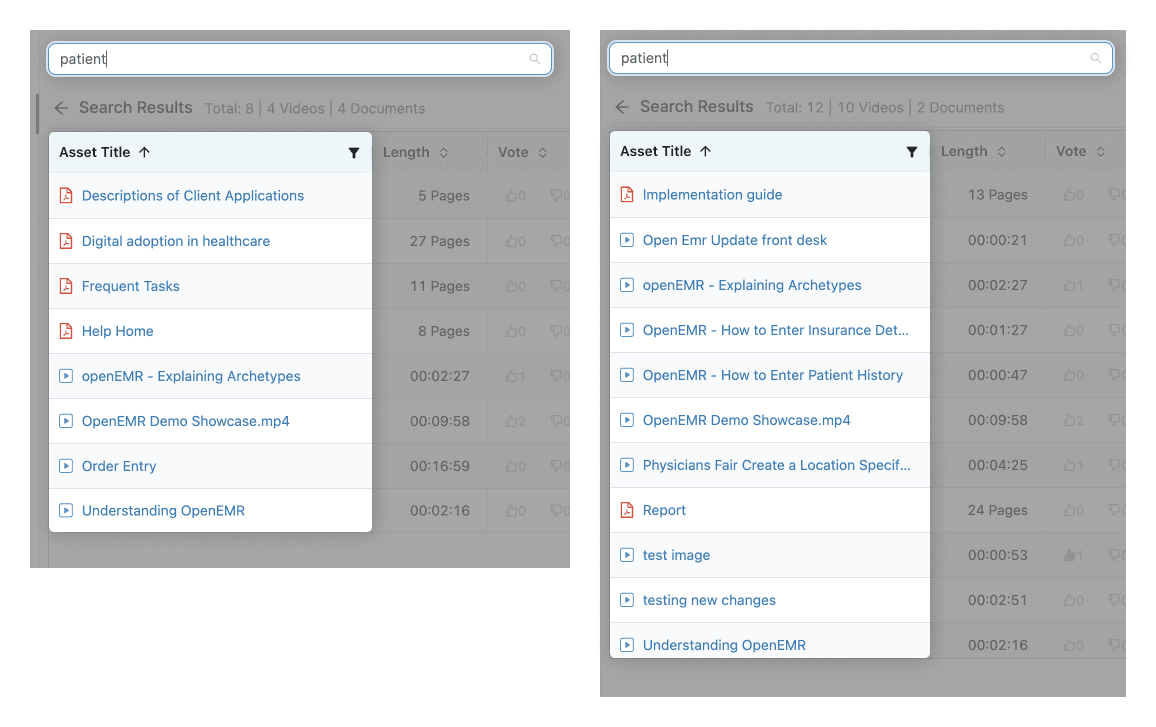
Fig 1 vs Fig 2: Product department (fig1) versus accounts department (fig 2) searching for 'Patient'
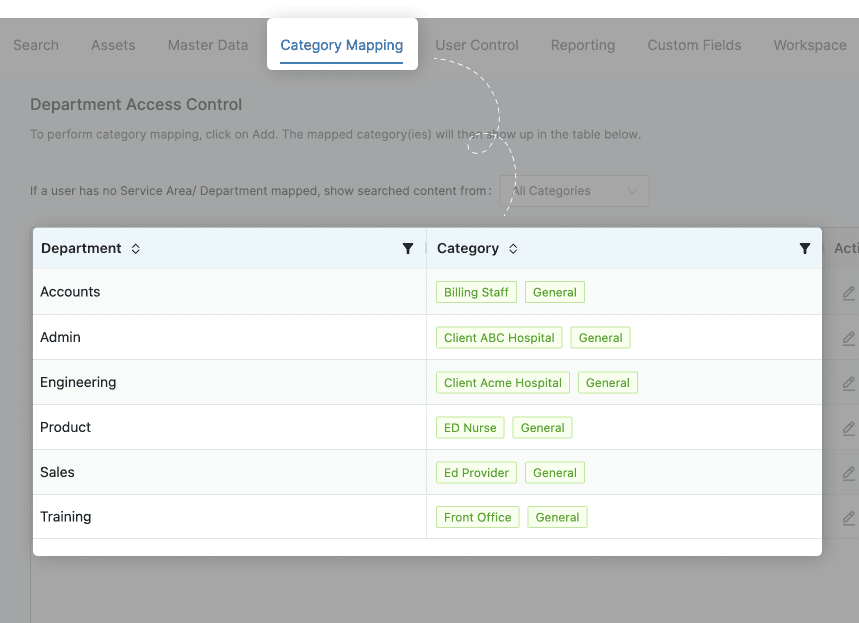
Fig 3: Category mapping - Jeeves categorizing available assets according to departments
Staying ahead in EHR adoption isn’t just about training—it’s about continuous improvement. Programs like Epic Gold Stars recognize healthcare organizations that optimize their workflows and maximize Epic’s potential. Learn more in our guide: Epic Gold Stars Program: What’s New and How to Excel.
When it comes to healthcare, the presence of an instant support solution at the point of care is very much needed. Physicians end up relying on support desks for instant solutions. However, support tickets come with their own set of problems. Firstly, there are frequent delays in providing information, which fails to cater to the need for an immediate solution. Secondly, support tickets do not always provide relevant information to the queries, and there is even a lack of transparency in the solutions that they provide. And thirdly, the cost of support desks is rising day by day.
As a solution, it is always preferable that physicians do not rely on support desks as the first support option.
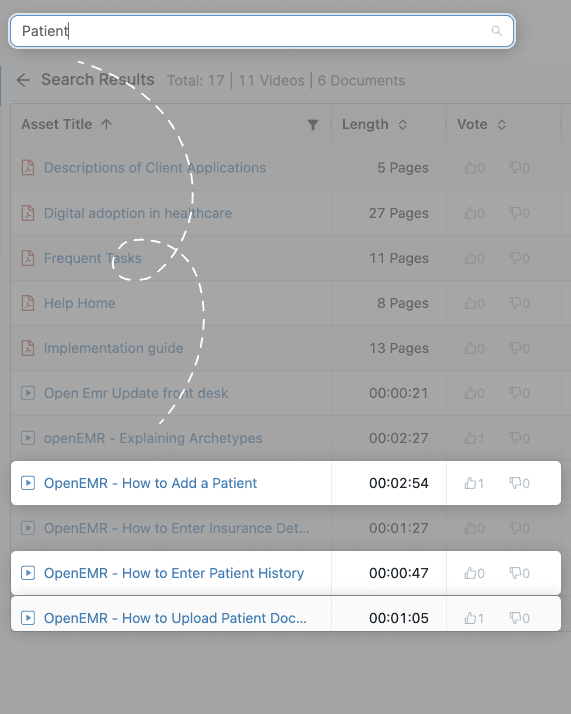
Fig 4: Jeeves providing AI-powered search results for the keyword 'patient'
Workflow management forms an important part of the healthcare environment. When managed efficiently, it helps in the reduction of potential medical errors, helps in improving the quality of patient care, as well as ensures compliance with industry regulation standards like HIPAA. Documenting workflows and keeping them updated, however, is a real challenge. Software support does not deal with workflows. Often, due to this, the EHR end-users end up trying out their own ways of documenting workflows, but it only results in the creation of inaccurate and incomplete workflows, which leads to inconsistent data capture and outcomes.
The pace with which new content gets updated in an EHR is also an issue. Often, the limited size of the team or few numbers of content creators can result in such challenges. They struggle in terms of prioritizing new content as well as updating the existing ones.
Jeeves allows you to record your workflows via its feature of screen recording. A demo of how this feature works in Jeeves is shown below.
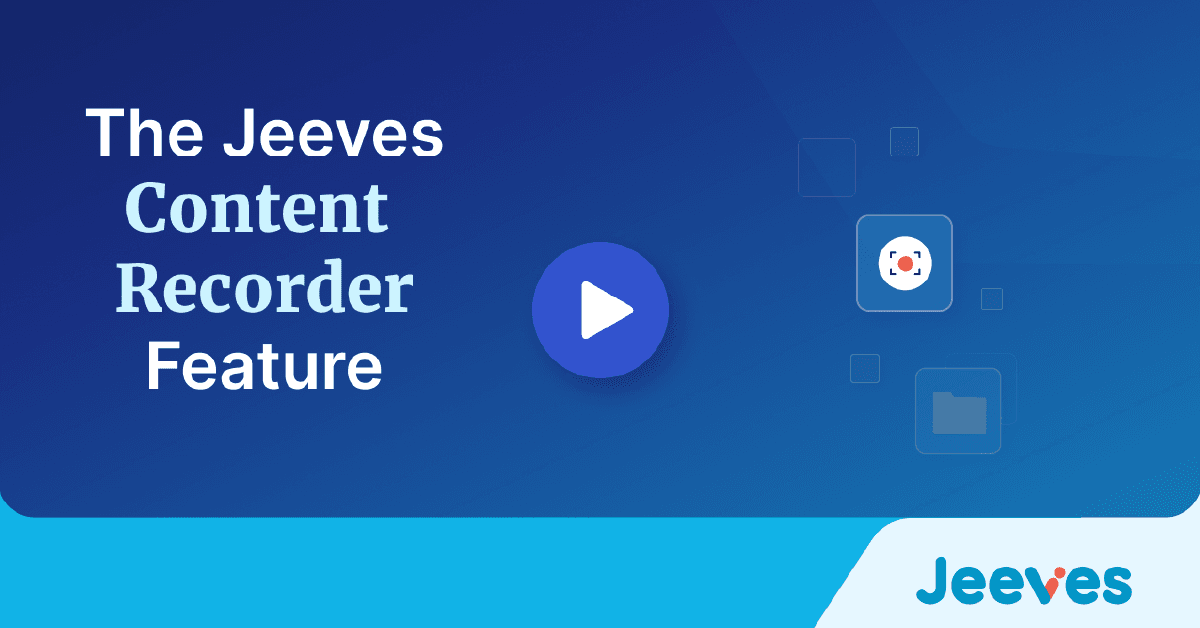
It also allows the creation of centralized support content that is monitored and regulated by the admin. This will make sure that documentation changes are updated regularly. By expanding the capability to record from just a selected group of trainers to super users, you can effectively scale your ability to create content at speed. These users are very familiar with the workflows, and this will ensure that it is done with full accuracy and completion.
In order to deal with the problem of slow content creation, the solution could be to democratize the process of creating content. Jeeves does not just allow crowdsourcing content creation but also makes the process of recording and publishing assets very smooth and easy. This is such that even non-authors and subject matter experts can publish assets without much hustle. Jeeves has a built-in authoring workflow, automated meta-data tagging, automated closed captions, and robust reporting, which contributes to faster content creation and update.
The adoption of a health IT system comes with various challenges. Therefore, healthcare providers must ensure that they are choosing the right software and training strategy to cater to all the requirements of IT training.
For a deeper dive into how to build an effective Epic Software Training strategy, check out our guide: How to Approach Epic Software Training and Succeed.
Jeeves, as a platform, not only would check off all of these requirements from a content creation perspective but also has the capability to streamline the other project lifecycle stages. Jeeves transforms the way health IT adoption is driven by accommodating the multiple requirements that are faced by each individual and organizational environment.
Join over 3,200 subscribers and keep up-to-date with the latest innovations & best practices in Healthcare IT.

The implementation of an EHR is certainly a breakthrough for your health system; however, clinicians are still …

Hospital project teams that are tasked with implementing Epic EHR have no shortage of important steps to …

Health systems are finding creative and innovative ways to keep physicians, clinical and administrative staff …